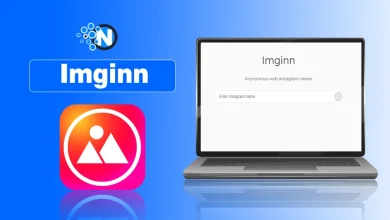10 Best Shopify Alternatives to Boost Your Sales in 2025
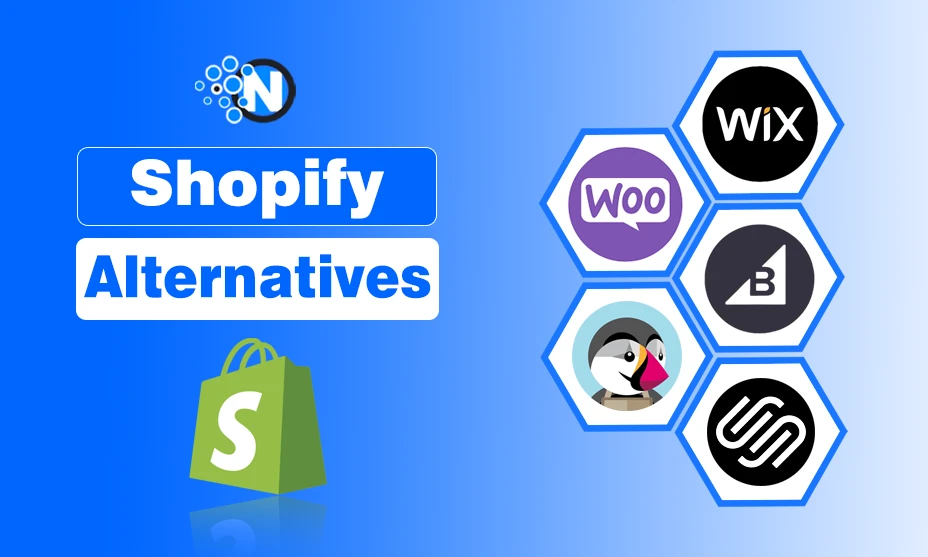
Are you tired of Shopify and do not understand why it does not reach your desired sales? However, what’s the reason? But you want to change it – so for this, I have taken the responsibility to let you know about the best Shopify Alternatives.
As we know, Shopify is probably the most popular platform for creating an eCommerce store and starting a business. However, it does come with its own set of complexities, due to which many businesses have to hire Shopify developers and external resources to manage it.
Moreover, Shopify may not be the right fit for some businesses due to its pricing model and customization limitations.
Therefore, I have brought you the 10 best Shopify alternatives to boost your sales in 2025.
Let’s get right after knowing little about Shopify.
What is Shopify?
Shopify is an elite web software for people and companies to design and build their own websites for selling products online. The platform consists of multiple design tools, website creation tools, payment solutions, inventory solutions, and marketing solutions for users to create, operate, and build their online store.
Shopify also offers a variety of apps and integrations to enhance your store’s functionality. You can customise your store from SEO tools to social media platforms integration to fit your specific needs. Plus, with Shopify’s real-time analytics, you can track your store’s performance and make data-driven decisions to grow your business.
10 Best Shopify Alternatives
So, here are some of the best Shopify alternatives that you can use as your next store builder.
1. WooCommerce
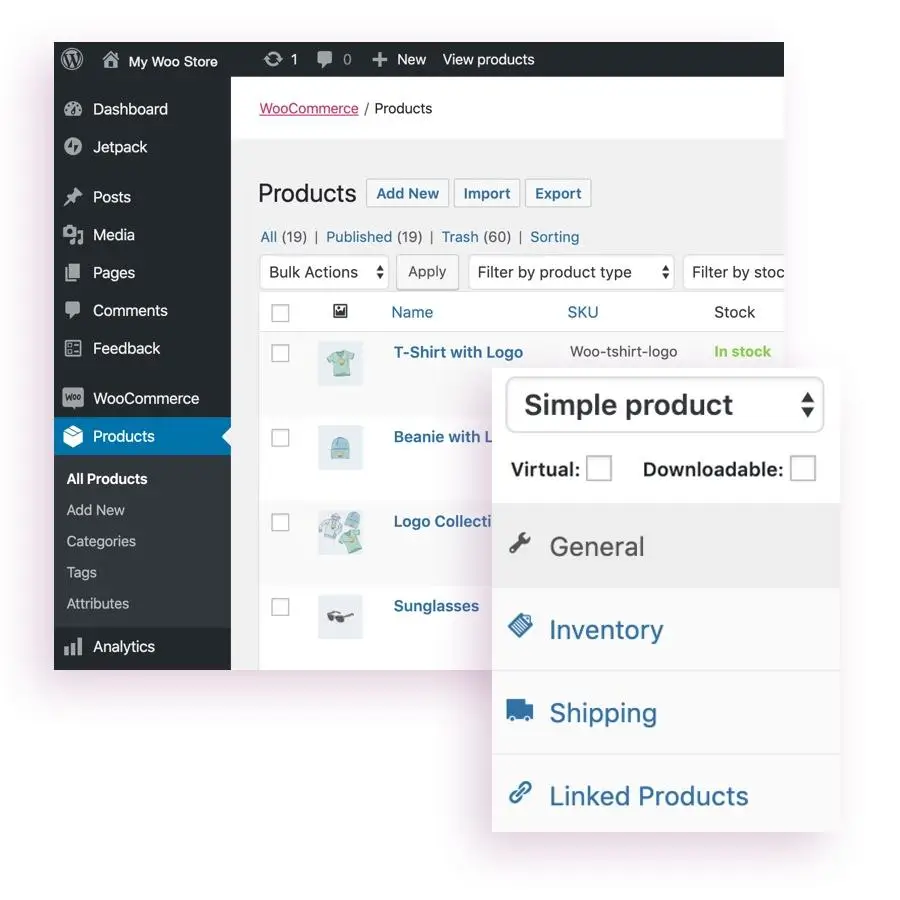
WooCommerce is one of the top open-source eCommerce plugins for WordPress that is very popular among the users for its ease of use. This WooCommerce plugins will turn your WordPress theme based eCommerce store into a fully equipped business management platform with a dedicated yet powerful Content Management System. The best part is that it won’t cost you anything except for hosting or theme purchasing to make your site more interactive.
Pros:
- Free to install as an additional plugin.
- Businesses looking to seamlessly manage their eCommerce store.
- Offers various customization options.
- Easy to use for those who are familiar with WordPress.
- Vast variety of plugins.
Cons:
- Requires hosting setup.
- It can become complex if installed with too many plugins.
2. BigCommerce
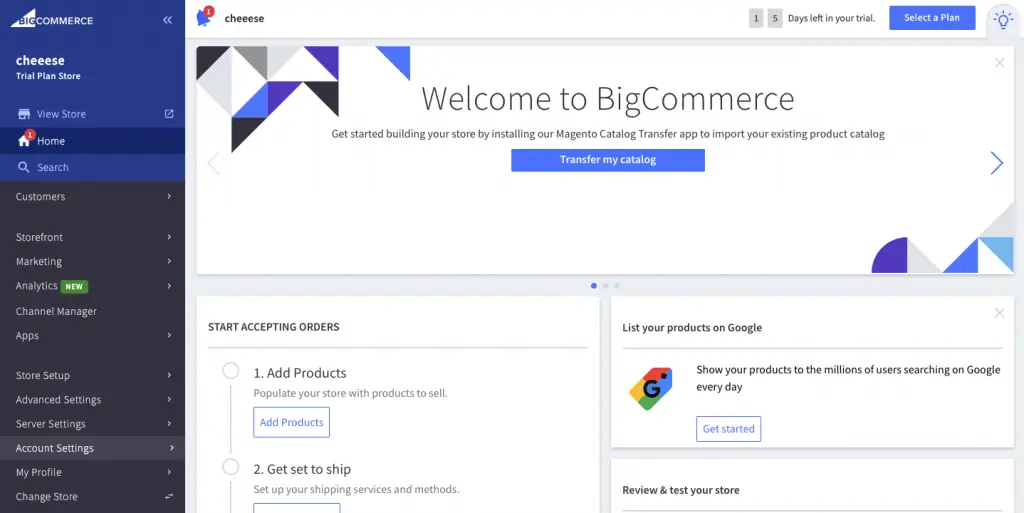
BigCommerce is probably a well-known alternative to Shopify that offers a complete set of options and features designed to help businesses scale for stable growth. This platform has built-in sales tools and analytics providers, which makes it a suitable choice for established businesses. Moreover, BigCommerce is capable of storing large catalogs, which makes it a favorable choice for businesses that have a variety of products to manage.
Pros:
- Best for businesses looking to expand without spending much on digital upgradation.
- No transaction fees are charged for using this platform.
- Includes built-in SEO tools.
- Offers unlimited product variants.
Cons:
- Limited customization options.
- Requires learning to use properly.
3. Wix eCommerce
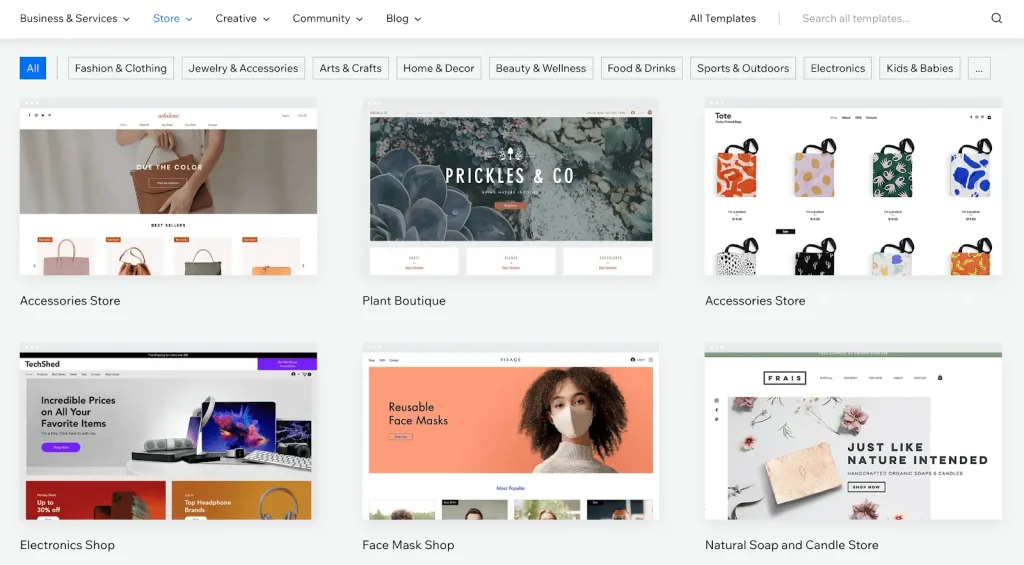
Wix is yet another drag-and-drop website builder that is well-known for making any type of web application, which also makes it a suitable option for eCommerce platforms. It offers you the flexibility to design with a range of templates with its drag-and-drop editor. With such feasibility of store building, this platform is ideal for small eCommerce stores.
Pros:
- Best for small businesses or beginners of eCommerce.
- Wix has a simple interface which makes it easy to use.
- Customizable templates for better personalization.
- Affordable pricing options.
Cons:
- Limited scalability for large eCommerce stores.
- Fewer advanced options for managing eCommerce stores.
4. Squarespace Commerce

Squarespace is yet another popular Shopify alternative that offers options to build an eCommerce store. This website builder is known for its stunning templates and growing styling options for Commerce. Squarespace is recommended for organizations and beginners who are just getting started with an eCommerce website. The design-first approach of Squarespace makes it ideal for brand-conscious businesses.
Pros:
- Offers a wide range of beautiful templates.
- Features built-in marketing tools.
- Easy to set up as compared to Shopify.
- Focuses on creativity and brand-centric website building.
Cons:
- Includes fewer payment methods as compared to other eCommerce website builders.
- Limited customization options.
5. Magneto by Adobe Commerce
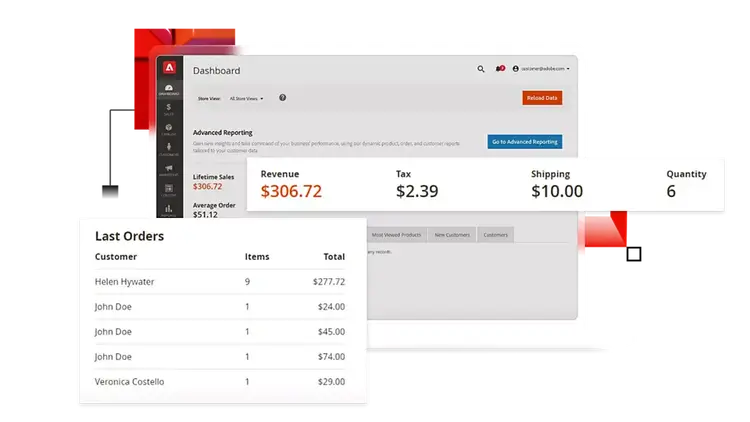
Magento, also known as Adobe Commerce, is yet another open-source platform that offers a wide range of options and features, favorable for large businesses. Magneto (Adobe Commerce) has a major advantage over Shopify when it comes to customization options.
However, it may require you to get technical expertise or assistance for maintenance. Therefore, for businesses who are looking for a robust e-commerce platform that offers the flexibility of customization, then Adobe Commerce is the right option.
Pros:
- Best for unique customizations and resource integration.
- Highly customizable yet flexible to use.
- Offers powerful integration of tools.
- Suitable for managing large catalogs.
Cons:
- Requires a high learning curve and technical knowledge.
- Costly as compared to many other eCommerce options.
6. Weebly by Square
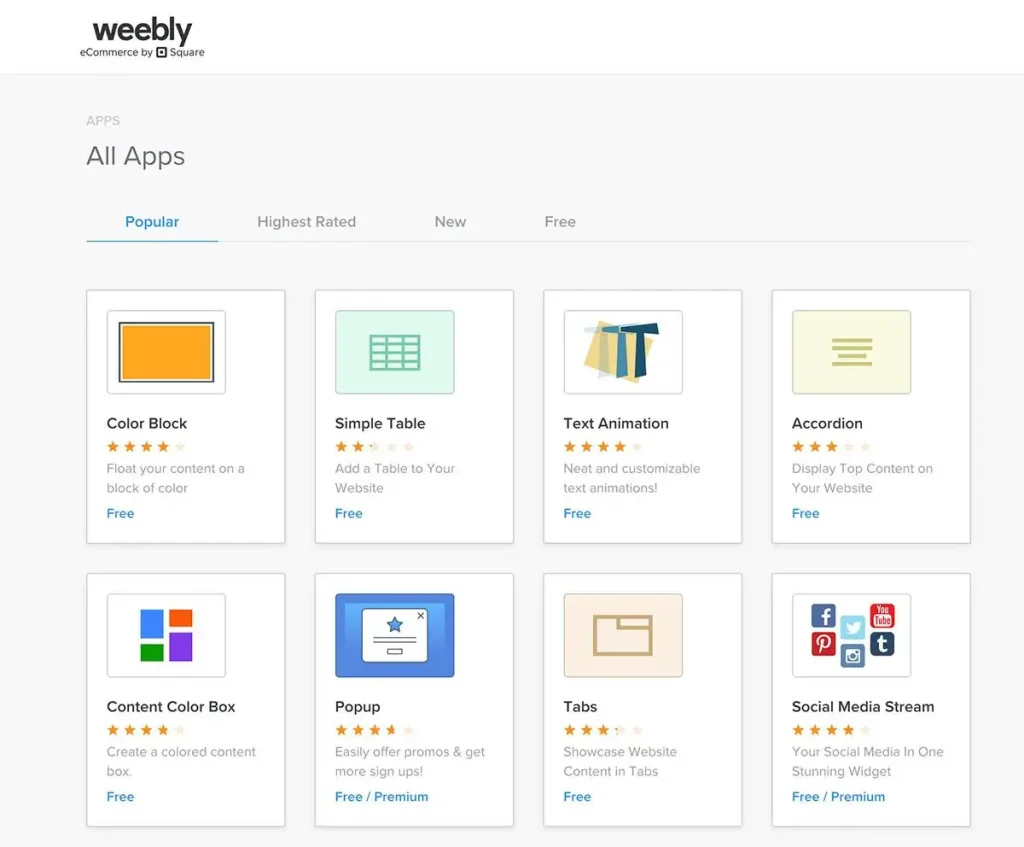
Weebly is an easy eCommerce solution offered by Square that can be integrated with POS systems. It is suitable for small businesses that have a need to easily integrate online and offline sales. It’s ideal for physical stores seeking to expand online with not much hassle because it can integrate with Square.
Pros:
- Affordable pricing plan even as being a paid tool.
- User-friendly interface for beginners.
- Seamlessly integrates with POS.
- Ideal for small business.
Cons:
- Limited design options.
- Not suitable for managing complex eCommerce.
7. PrestaShop
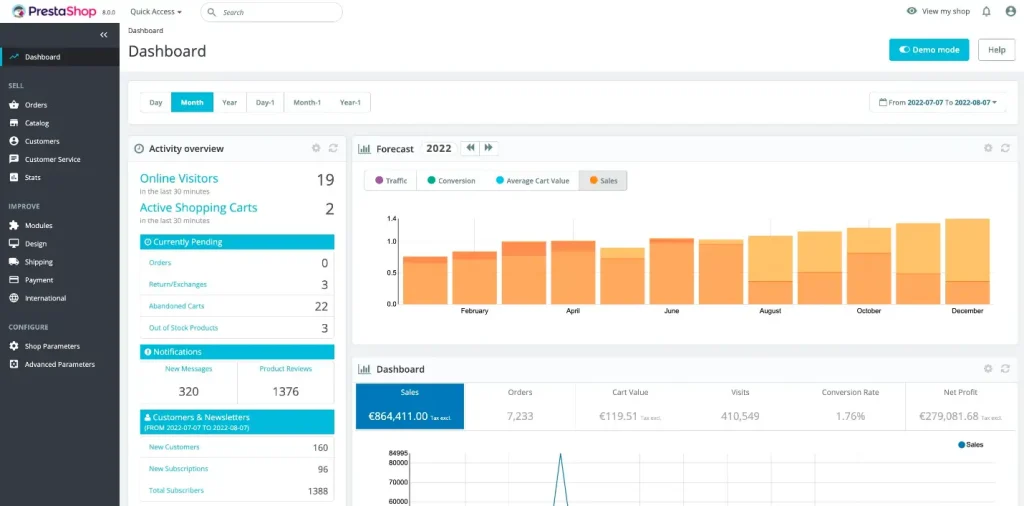
PrestaShop is an open-source eCommerce platform with immense flexibility for businesses of any scale. With PrestaShop, you can avail yourself of a fully customizable, budget-friendly eCommerce platform. Since it’s open source, you can really fiddle around and extend the code as much as possible to meet the business’s needs. So, here’s one that fits very well for the tech-savvy entrepreneurs.
Pros:
- Free to use and set up.
- Offers an extensive plugin library.
- Highly customizable for complex eCommerce management.
- Best for businesses offering digital services or products.
Cons:
- Requires technical knowledge to set up.
8. Shift4Shop (formerly 3dcart)
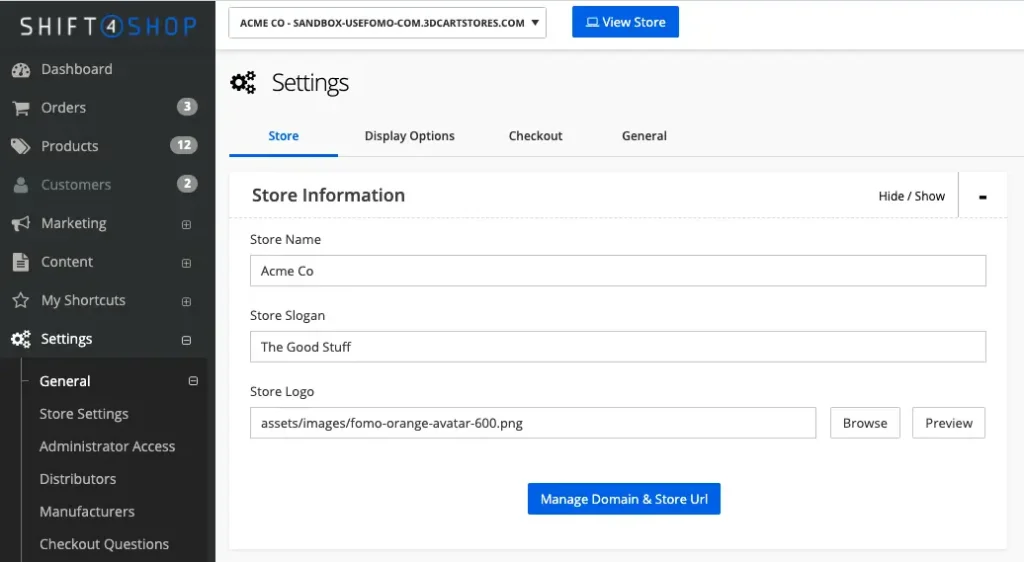
Shift4Shop is one of the fully-featured eCommerce platforms, which was established to be a strong competitor of Shopify. It stands as one of the best and most affordable options among others, offering competitive features to businesses in the United States.
It comes equipped with a powerful set of built-in tools that serve both SEO and eCommerce functionalities to help users maintain transaction costs low.
Pros:
- Offers a free plan for US-based businesses.
- Reliable and robust SEO features.
- No transaction fees are charged.
- Best for US-based businesses looking for a Shopify alternative.
Cons:
- The interface may seem outdated for some users.
- Limited options for templates and customization.
9. Sellfy
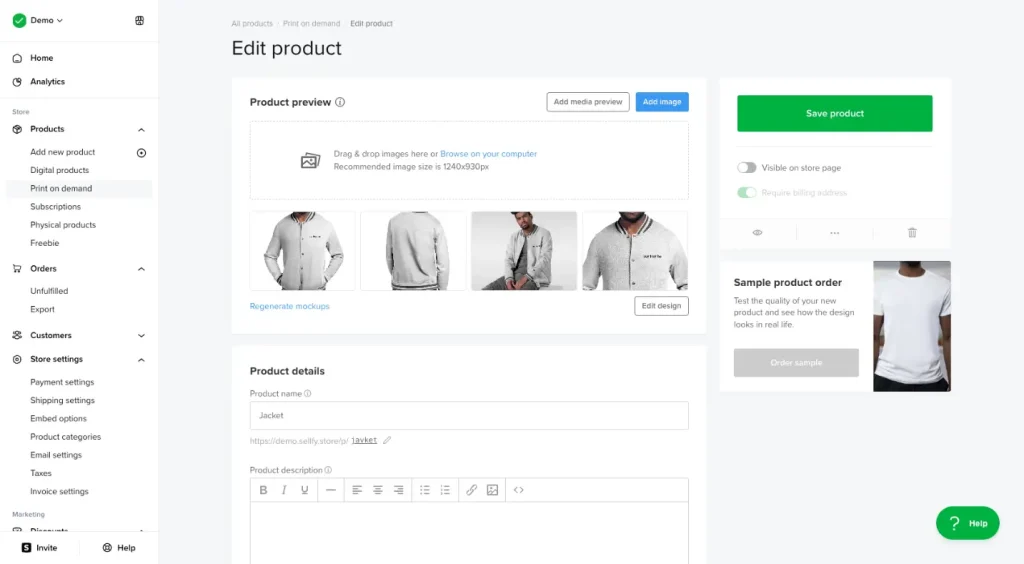
Sellfy is a service for creators who want to sell digital products, subscriptions, and print-on-demand items. The platform focuses on digital product creators with a simple, user-friendly platform for selling eBooks, digital art, music, and other items.
It’s best suited for people looking for a straightforward, simple platform without requiring extensive eCommerce features.
Pros:
- Perfect for selling digital products.
- User-friendly interface.
- No additional charges are required.
- Best for digital influencers and artists who sell online.
Cons:
- Fewer customization options.
- Limited product features.
10. Volusion

Volusion has been one of the most reliable eCommerce platforms for over two decades, emphasizing ease of use and comprehensive analytics. It provides a reliable solution to businesses seeking to understand their customers through data analytics. However, it lacks advanced blogging and marketing tools; its strength lies in its efficacy in helping businesses that focus on product performance and customer insights.
Pros:
- Built-in analytic tools for reliable analysis.
- No additional or hidden charges are required.
- Fairly easy to set up, even for beginners.
- Perfect for small-sized businesses looking for data-driven growth.
Cons:
- Features limited blogging tools.
- Receives fewer updates for improvement.
The Conclusion
There are also a lot of Shopify alternatives nowadays, catering to your varied business needs. Businesses can be small creators growing into enterprise or more established brands, and hence, the choice of the ideal eCommerce platform is critical and affects the success of being online.
All the different alternatives mentioned here have diverse features, so you are likely to choose the one you think will suit your kind of business needs, along with the technical expertise on board and your growth expectations.
FAQs
Why should you consider a Shopify alternative in 2025?
Many businesses look for Shopify alternatives for Shopify’s transaction fees, limited designing capabilities, and fixed pricing plans. Moreover, some companies are looking for advanced-level customization which is not offered with Spotify.
Are there Spotify Alternatives that have no transaction fees?
WooCommerce is the best Shopify alternative that has no transactional fees and works perfectly. However, the credit card processing fee will be applied based on the payment gateway.
Can I migrate data from my Shopify Store to the alternative platform?
Yes, there are migration tools that seamlessly transfer your data like products, customers, and order histories to the new platform. For this purpose, you can take assistance from migration tools like Cart2Cart.




